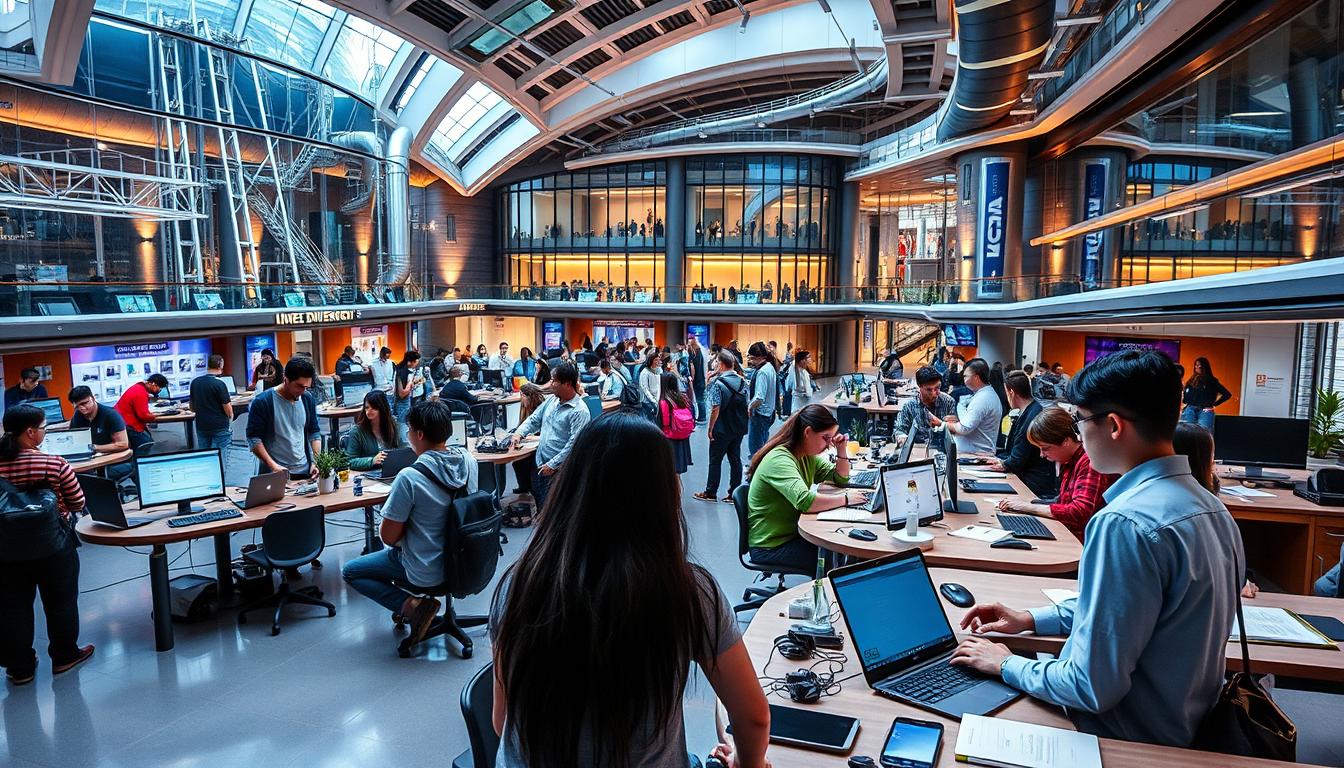
In recent years, higher education has undergone a significant transformation, shifting from traditional pedagogical approaches to more dynamic, student-centered learning models. At the forefront of this evolution is experiential learning, a process through which students engage in direct experience and focused reflection to gain deeper understanding and practical skills. This blog post delves into the rise of experiential learning in higher education, exploring its definitions, benefits, challenges, and the innovative practices being adopted by institutions worldwide.
What is Experiential Learning?
Experiential learning is a holistic educational approach that emphasizes learning through experience. Coined by educational theorist David Kolb, experiential learning comprises four key stages:
- Concrete Experience: Engaging in an experience, such as internships, service projects, or simulations.
- Reflective Observation: Reflecting on the experience to understand its significance and implications.
- Abstract Conceptualization: Developing theories or concepts based on reflections.
- Active Experimentation: Applying newly gained knowledge in real-world situations.
This cyclical model encourages students to take ownership of their learning, allowing them to apply theoretical knowledge in practical contexts, thus fostering critical thinking, problem-solving, and teamwork skills.
The Benefits of Experiential Learning
1. Enhanced Engagement and Retention
Experiential learning transforms passive learning into active participation. By immersing students in hands-on experiences, they are more likely to remain engaged and motivated. Research shows that students involved in experiential learning retain information better and can connect concepts across disciplines, leading to a more profound understanding of the material.
2. Development of Practical Skills
Employers increasingly seek graduates with not only academic knowledge but also practical skills. Experiential learning equips students with real-world competencies, such as communication, leadership, and adaptability, making them more marketable in the job market. Internships, co-op programs, and service-learning opportunities provide students with firsthand experience in their chosen fields.
3. Fostering Critical Thinking and Problem-Solving Abilities
Experiential learning challenges students to think critically and solve complex problems. As they encounter real-world challenges, students must analyze situations, evaluate alternatives, and make decisions, enhancing their analytical and critical thinking skills.
4. Promotion of Social Responsibility and Civic Engagement
Experiential learning often includes community service components, encouraging students to engage with their communities and develop a sense of social responsibility. By participating in service-learning projects, students gain insights into societal issues and contribute positively to their communities.
5. Personal Growth and Self-Discovery
Through experiential learning, students gain valuable insights into their strengths, weaknesses, interests, and values. This self-discovery process fosters personal growth, empowering students to make informed decisions about their careers and future paths.
Innovative Practices in Experiential Learning
As experiential learning gains traction in higher education, institutions are adopting innovative practices to enhance student experiences. Here are some notable examples:
1. Internships and Co-op Programs
Many universities have established robust internship and co-op programs, partnering with local businesses and organizations to provide students with hands-on experience in their fields. These programs often integrate classroom learning with practical application, allowing students to develop industry-specific skills and professional networks.
2. Service Learning
Service learning combines community service with academic coursework, allowing students to apply their knowledge to real-world challenges while contributing to their communities. Institutions are increasingly embedding service learning into curricula across disciplines, fostering a sense of civic responsibility and social awareness.
3. Simulations and Role-Playing
Educational simulations and role-playing exercises provide students with opportunities to practice skills in controlled environments. Fields such as business, healthcare, and education have incorporated simulations to mimic real-life scenarios, enabling students to experiment and learn from their decisions without the risks associated with actual practice.
4. Study Abroad Programs
Study abroad programs immerse students in different cultures and environments, enhancing their global perspective and intercultural competencies. These programs often involve experiential learning components, such as internships or community engagement projects, allowing students to apply their learning in diverse contexts.
5. Project-Based Learning
Project-based learning engages students in long-term, interdisciplinary projects that require collaboration and problem-solving. Students work on real-world problems, developing solutions that have practical applications, which can culminate in presentations or products that showcase their learning.
Challenges in Implementing Experiential Learning
While the benefits of experiential learning are compelling, institutions face several challenges in its implementation:
Resource Allocation: Developing and maintaining experiential learning programs requires substantial resources, including funding, staffing, and facilities. Institutions must prioritize these programs and allocate adequate resources to ensure their success.
Curriculum Integration: Integrating experiential learning into existing curricula can be complex. Faculty must align experiential activities with learning outcomes and ensure that they complement traditional teaching methods.
Assessment and Evaluation: Assessing experiential learning can be challenging, as traditional evaluation methods may not adequately capture students' growth and learning. Institutions must develop robust assessment strategies that reflect the unique nature of experiential learning.
Faculty Training and Support: Faculty play a crucial role in facilitating experiential learning experiences. Providing training and support for faculty is essential to ensure they are equipped to guide and assess students effectively.
The Future of Experiential Learning in Higher Education
As the landscape of higher education continues to evolve, experiential learning is poised to play a central role in shaping the educational experience. The demand for graduates with practical skills and a strong understanding of real-world applications will only increase, pushing institutions to innovate and adapt.
The rise of technology also presents new opportunities for experiential learning. Virtual simulations, online collaborative projects, and digital storytelling are expanding the possibilities for experiential education, making it more accessible to students regardless of geographic location.
Moreover, as the workforce becomes increasingly globalized, the importance of intercultural competence cannot be overstated. Experiential learning, particularly through study abroad programs and international collaborations, prepares students to navigate diverse environments and work effectively with people from different backgrounds.
Conclusion
The rise of experiential learning in higher education represents a significant shift towards more engaging, practical, and student-centered educational practices. By emphasizing hands-on experiences, reflection, and real-world applications, experiential learning equips students with the skills and knowledge necessary to thrive in an increasingly complex and dynamic world. As institutions continue to embrace and innovate within this model, the future of higher education promises to be more relevant, impactful, and transformative for students.
In the words of John Dewey, "We do not learn from experience... we learn from reflecting on experience." The journey of experiential learning is not just about doing but understanding, growing, and ultimately becoming lifelong learners prepared to face the challenges of the future.




